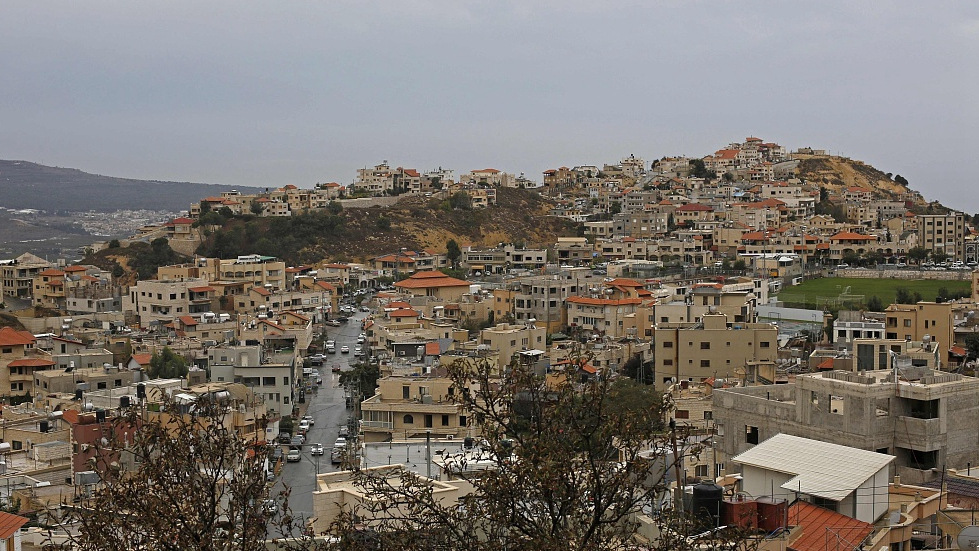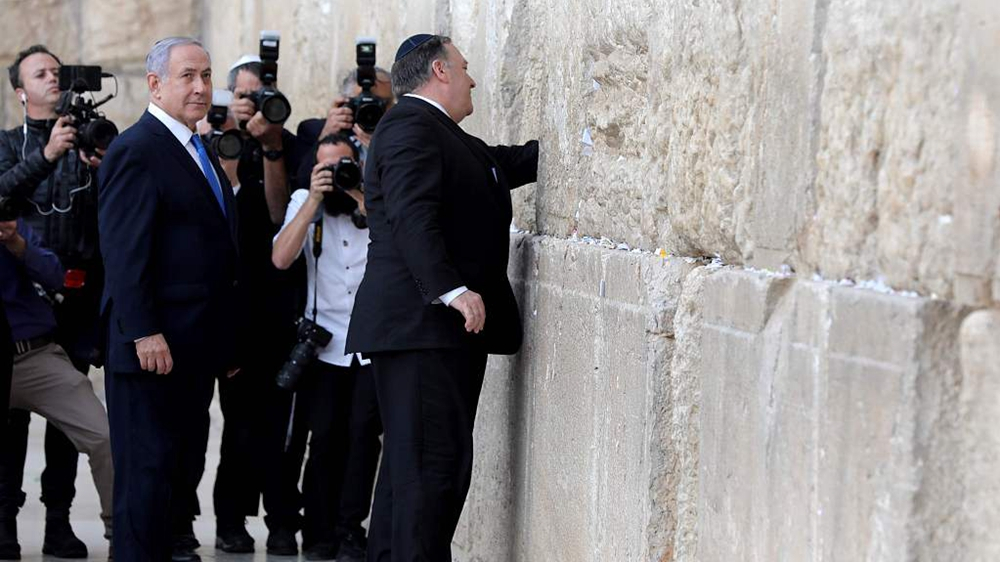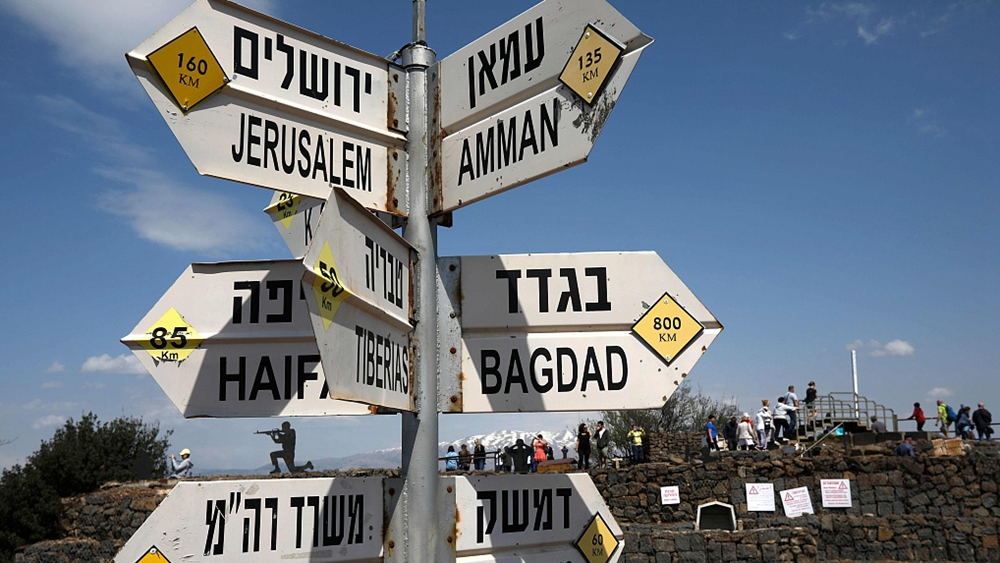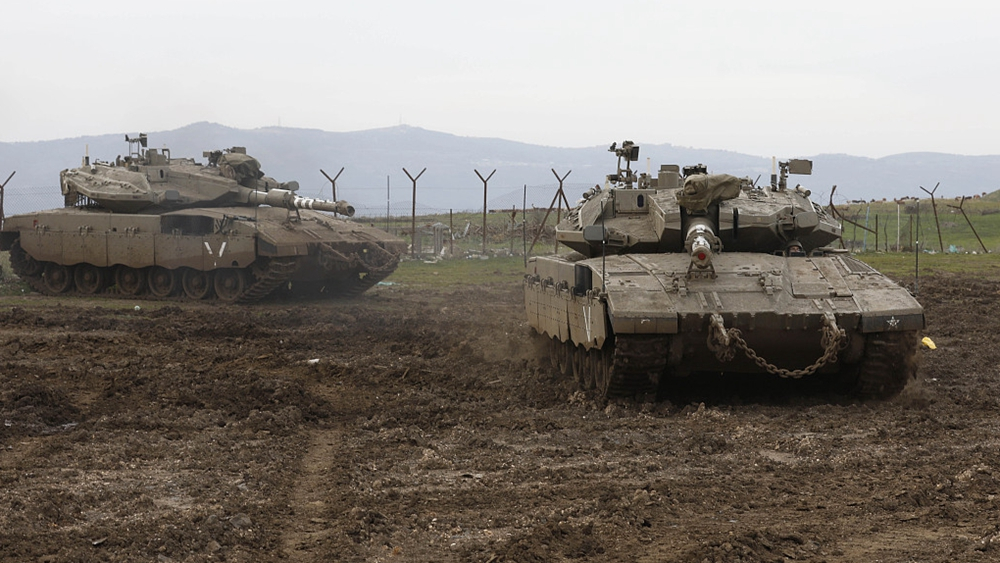
Middle East
12:02, 23-Mar-2019
Syria vows to recover Golan as Trump policy shift draws criticism
CGTN

The Syrian government vowed to take back the Israeli-occupied Golan Heights as both its allies and enemies condemned U.S. President Donald Trump on Friday for moving to recognize Israeli sovereignty over the territory seized in war.
Trump's statement on Thursday marked a dramatic shift in U.S. policy over the status of a disputed area that Israel captured from Syria in the 1967 Middle East conflict and annexed in 1981, a move not recognized internationally.
Against this backdrop of hostility toward the U.S. move, Secretary of State Mike Pompeo visited Beirut where he took aim at Israel's main regional foes, Hezbollah, and its backer Iran, and declared the success of U.S. sanctions against them.
Trump's declaration is the latest U.S. step to fuel anger in the region, both in states that are hostile to Israel and others that have relations with it and are allied to the United States.

Israeli Prime Minister Benjamin Netanyahu (L) stands by as U.S. Secretary of State Mike Pompeo (R) offers prayers at the Western Wall in Jerusalem's Old City, March 21, 2019. /VCG Photo
Israeli Prime Minister Benjamin Netanyahu (L) stands by as U.S. Secretary of State Mike Pompeo (R) offers prayers at the Western Wall in Jerusalem's Old City, March 21, 2019. /VCG Photo
It follows the U.S. recognition in December 2017 of Jerusalem as Israel's capital, a decision that also stirred international criticism as the city's disputed status remains at the heart of the Israeli-Palestinian conflict.
Russia, an ally of Syrian President Bashar al-Assad, said Trump's comments risked seriously destabilizing the region, and it voiced hope the statement was just declaratory.
Iran, Assad's main regional ally, condemned the statement as illegal and unacceptable.
"The personal decisions of Trump will lead to crisis in the region," Iran's foreign ministry spokesperson said.

A signboard indicates directions toward Jerusalem, Amman, Damascus and Baghdad at an army post on Mount Bental in the Golan Heights, March 22, 2019. /VCG Photo
A signboard indicates directions toward Jerusalem, Amman, Damascus and Baghdad at an army post on Mount Bental in the Golan Heights, March 22, 2019. /VCG Photo
Turkey, a U.S. ally and an adversary of Damascus, also said the move had brought the Middle East to the edge of a new crisis and the legitimization of the occupation of the Golan Heights could not be allowed.
Israeli Prime Minister Benjamin Netanyahu thanked Trump for his gesture "at a time when Iran seeks to use Syria as a platform to destroy Israel."
The Syrian government said the Golan was an "indivisible" part of Syrian territory and recovering it "via all means guaranteed by international law is still a priority."
It said U.S. with its "stupidity and arrogance" had no right to decide the fate of the area and any move to recognize Israeli sovereignty over it was "an illegal action with no impact."

Merkava tanks of Israel's army stationed in the Golan Heights, January 20, 2019. /VCG Photo
Merkava tanks of Israel's army stationed in the Golan Heights, January 20, 2019. /VCG Photo
After remaining calm for decades since a 1974 armistice monitored by UN peacekeepers, Golan re-emerged as a flashpoint for regional tensions during the Syrian war. Last May, Israel accused Iran's Revolutionary Guards of launching a rocket salvo into its territory from the Syrian side of the truce line.
Israel, which has mounted numerous air strikes against what it has called Iran-backed targets in Syria, has demanded Russia keep forces allied to Tehran away from the boundary.
The Syrian side was held by rebel forces for years until pro-government forces recovered it in July.
Source(s): Reuters

SITEMAP
Copyright © 2018 CGTN. Beijing ICP prepared NO.16065310-3
Copyright © 2018 CGTN. Beijing ICP prepared NO.16065310-3